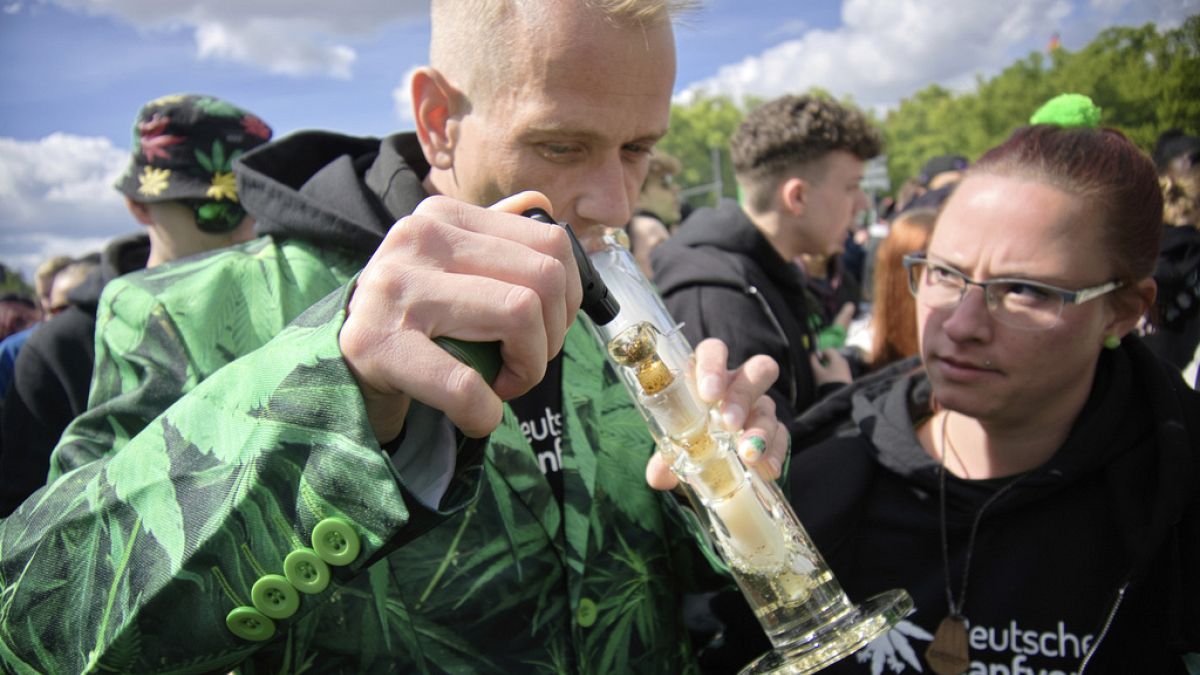Germany has approved its first marijuana social club - just a week after the law allowing these spaces came into effect.
Marking the latest development in the implementation of Germany’s legalisation law, other permits for such social clubs are set to follow in the coming weeks.
The first club - Social Club Ganderkesee - was given the go-ahead by Lower Saxony Minister of Agriculture Miriam Staudte, but other regions of Germany are less keen to approve such ventures.
States including Bavaria have instead said they will exercise their authority to impose restrictions - ensuring that permits for clubs will not be given until the autumn at the very earliest.
Can tourists buy weed in Germany?
As it stands, it’s not possible for any foreigners or tourists to legally purchase cannabis in Germany.
Membership in the social clubs is, and will continue to be, heavily regulated - with residency in the region a prerequisite.
The most significant issue regarding legalisation in Germany has been the red tape of EU law - which has led to the initiative being divided into several stages.
The next step for the future of cannabis use in the country - for citizens and visitors alike - includes plans for commercial sales, and it’s not yet known when tourists will be included.
Back in April, it became legal in Germany for adults to possess and cultivate marijuana but it hasn’t been easy to access without the existence of clubs.
Under German law, social clubs will each be limited to having 500 members and will be permitted to sell up to 50 grams of marijuana per person each month.
The nation is the third in Europe to legalise the drug for recreational use, following in the footsteps of Malta and Luxembourg - but it’s still not clear exactly how relaxed German authorities are.
In the neighbouring Netherlands, the sale and use of small amounts of marijuana and hashish are allowed in licensed ‘coffee shops’ - and they’re famous for attracting so-called weed tourists, keen to experience highs without breaking laws.
With seemingly endless discussions around legalisation in Germany, though, it’s currently unlikely that the nation will follow suit in that tourism trend.
What are the rules around cannabis use in Germany?
While the launch of the first social club is good news for some, many advocates and stakeholders in the world of cannabis are waiting for the government’s plan for a second pillar of the law which will provide a broader commercial sales model.
Legalisation in Germany has been hotly disputed in parliament - and beyond.
While chancellor Olaf Scholz’s ruling three-party coalition legalised cultivating up to three plants for private consumption, the possession of 50g of cannabis at one time at home and 25g in public, opposition politicians have been in uproar.
There have been heated debates about the pros and cons of allowing easier access to the drug since its legalisation on 1 April.
The health minister, Karl Lauterbach, said, “We have two goals: to crack down on the black market and improve protection of children and young people” - but the opposition accused him of promoting drug use.
In June, German lawmakers approved a series of changes to the law, imposing restrictions related to impaired driving as well as giving individual states more authority to set limits on cannabis cultivation within their own borders.
The amendments were eventually agreed on in order to avoid a potential months-long delay in the implementation of the legalisation.
They were made, in part, to appease the Federal Council.
The body, which represents individual states, had tried to block the now-enacted legalisation proposal last September - but it ultimately failed.
Is there global support for legalisation in Germany?
Germany first took a step towards legalisation in 2022, with a group of lawmakers touring California cannabis businesses to inform their country’s approach to making the drug legal.
Whatever happens in Germany, the nation can’t rely on much international support.
The United Nations’ drug control body has recently reiterated that it considers legalising marijuana for non-medical or scientific purposes a violation of international treaties.
It has, though, commended Germany’s government for scaling back its cannabis plan and making it more limited.
In December, Lauterbach - who has led the government’s cannabis legalisation efforts - explained that the commercial sales plan would be released in the second pillar. With legalisation in effect, though, there’s been increased pressure to expedite that process.
With everything up in the air, it’s unlikely Germany will become a hotspot for weed tourism any time soon.


